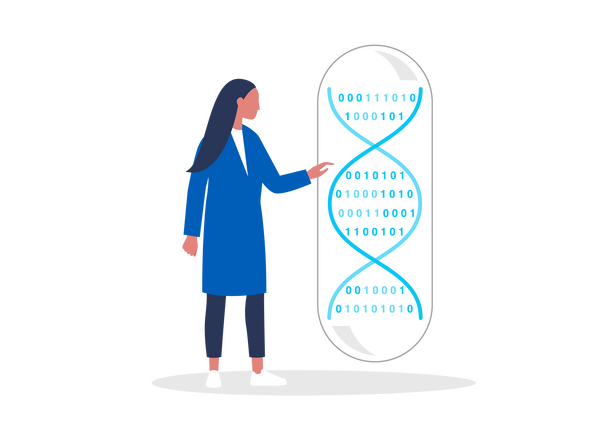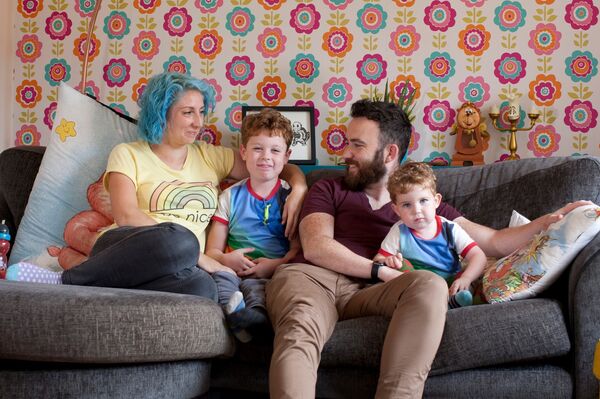Kaleb's story: Fragile X Syndrome
Kaleb is the son of Mark Smith, 41, who works in IT, and his wife Kathryn (38). They live near Birmingham with their other son Alby (5). Kaleb lives with a rare disease called Fragile X Syndrome. Mark is also a trustee of the Fragile X Society.

About Fragile X Syndrome (FXS)
Fragile X Syndrome is a genetic condition and the most common inherited cause of learning disabilities. Testing for FXS is carried out by a DNA blood test.
1 in 4,000 males
are affected by Fragile X
1 in 6,000 females
are affected by Fragile X
~1/3 of people with FXS
are also diagnosed with autism
How Fragile X Syndrome can affect someone
FXS can cause a wide range of difficulties with learning, as well as social, language, attentional, emotional, and behavioural problems.
Although not everyone with Fragile X Syndrome has autism, many of the behaviours associated with the condition such as inattention, hyperactivity and anxiety are autistic-like.

Kaleb’s story

Kaleb’s parents knew there was a 50% chance of Kaleb having Fragile X Syndrome. They suspected it at birth due to some subtle differences and had their suspicions confirmed at just a few weeks old by their genetic counsellor. Kaleb was late to crawl, walk, speak, and struggled with his fine motor control. He continues to struggle with sensory and social issues and finds the world a very difficult place when he’s outside the home and things aren’t on his terms.
Unlike most children with FXS, he received an early diagnosis which quickly granted him access to a range of essential therapies and services. After starting in a mainstream first school setting, he’s now moved to a specialist unit embedded within the middle school.
“Kaleb’s quite high functioning for someone with Fragile X and getting early access to therapies was really important,” said Mark. “Outside the home Kaleb exists in a limbo – he’s not able to easily access the mainstream world or function in a normal classroom setting while at the same time he’s not disabled enough for him to attend a specialist school.”
Getting a diagnosis
Most children with Fragile X aren’t formally diagnosed until they start primary school, delaying access to crucial services. As it’s a rare genetic condition, parents are reliant on their local GP service having someone with experience and knowledge of the condition.
“Getting a diagnosis is simply down to pot-luck – it’s a ‘postcode lottery’ scenario,” said Mark. “The vast majority of families experience frustratingly long delays in getting a diagnosis. It’s not an exaggeration to say it’s a life changing process – obtaining a diagnosis is the key to getting appropriate help with education, speech and language, behaviour, and treatment for any physical issues.”
How whole genome sequencing can help those with Fragile X
“I see an increased use of whole genome sequencing helping in a number of ways," said Mark. "It should speed up the number of young children being diagnosed and being able to access services. At the same time, researchers will have more data to work with – knowledge is power.”
“It’s also important to remember that diagnosis has implications for other relatives. Some may be at risk of having affected children or the range of medical conditions associated with Fragile X Syndrome and could benefit from testing and genetic counselling.”